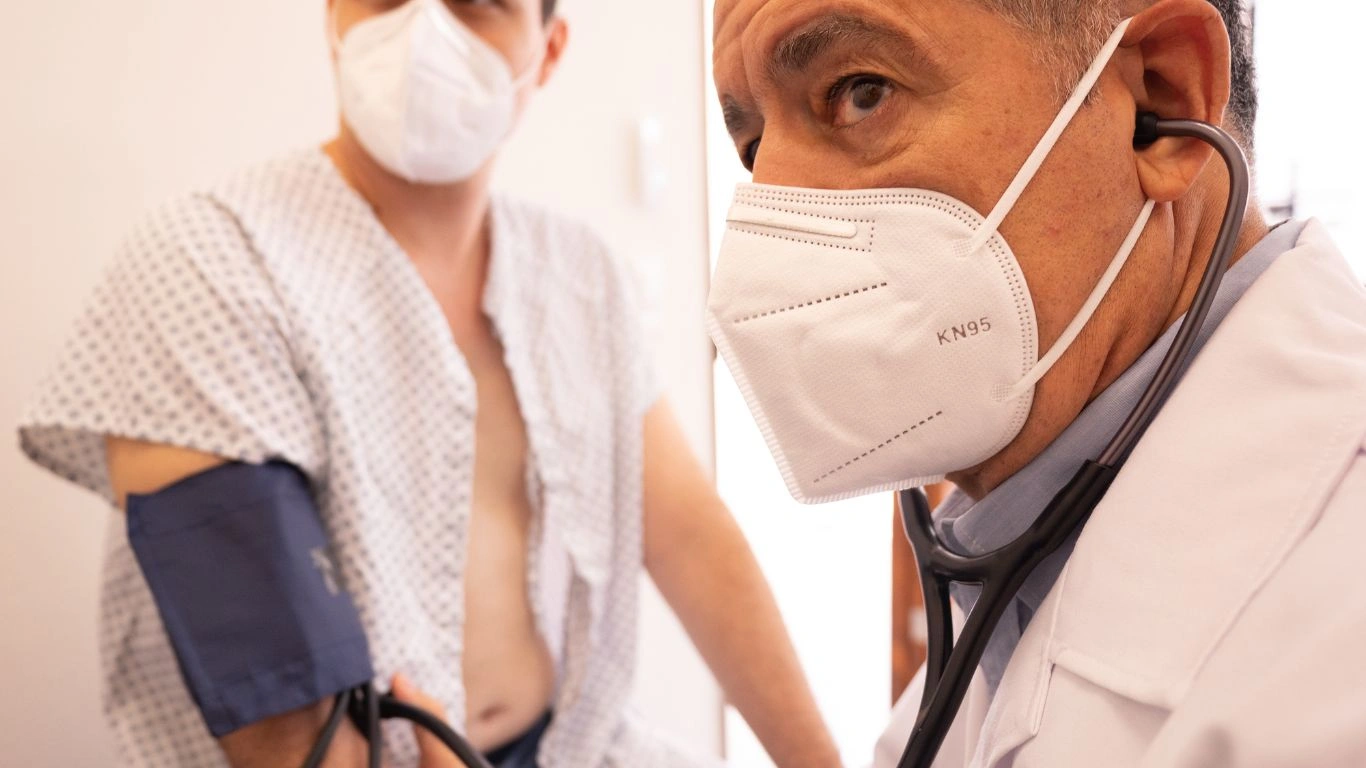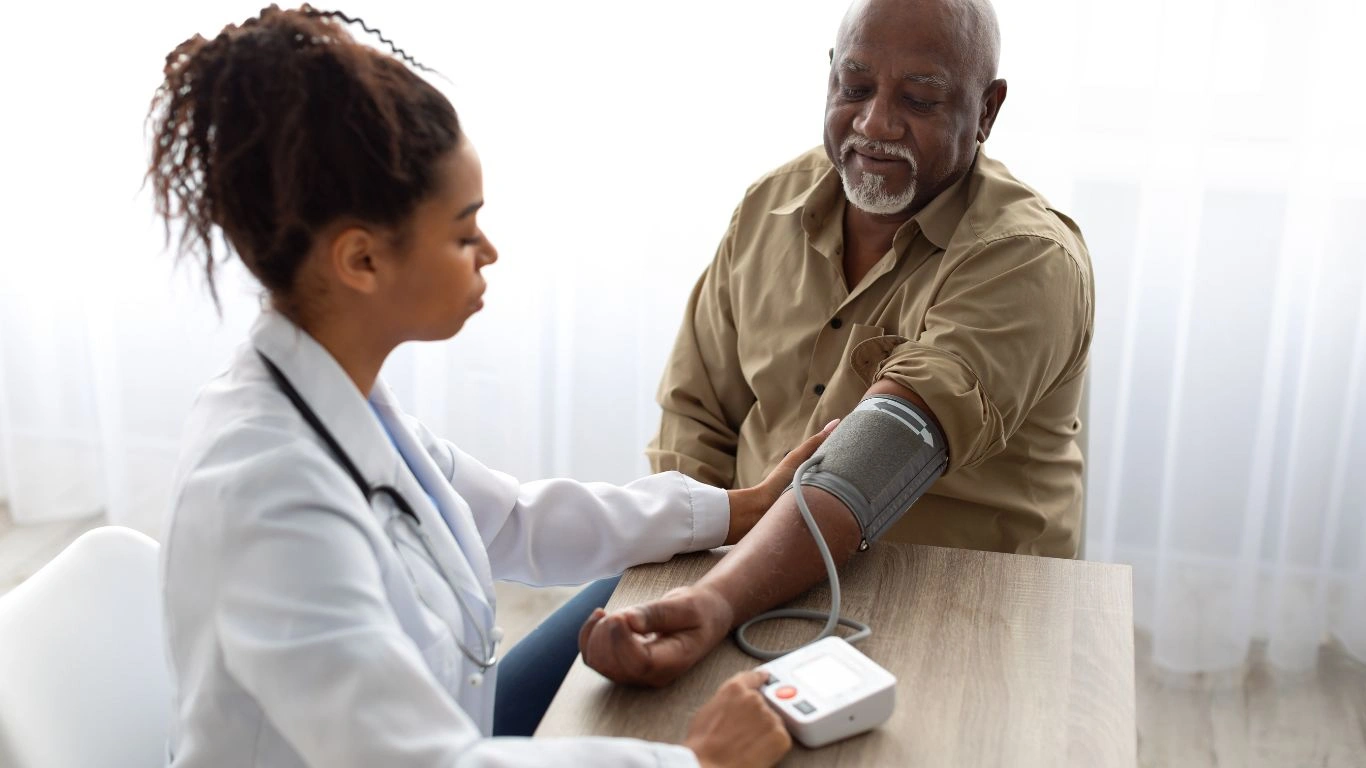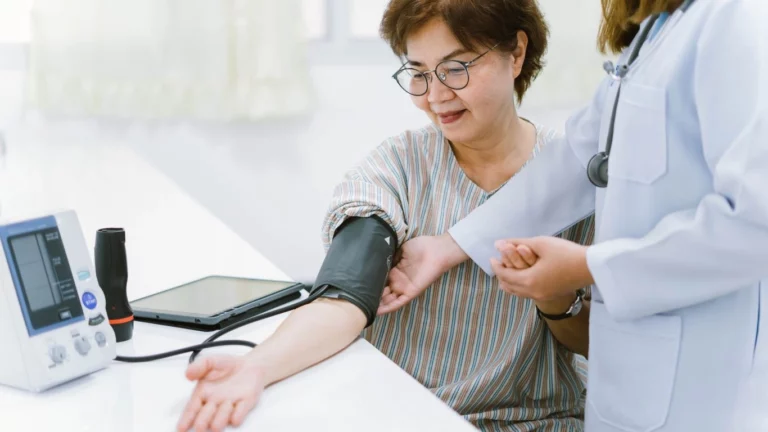Blood Pressure and Digestive Health Solutions You Can Start Today for Better Health
Let’s talk about something we all know is important but might not always pay enough attention to: managing blood pressure and taking care of your digestive health. In my years of experience as a Hypertension expert, I’ve seen countless patients who struggle with both—whether it’s high blood pressure, digestive issues, or a frustrating combination of both. But here’s the good news: there are blood pressure and digestive health solutions that can make a real difference. They don’t have to be complicated or overwhelming—sometimes, it’s just about making small changes that can add up to big results.
So, let’s dive into this, and I promise I won’t overwhelm you with jargon or medical talk. I want to share practical tips and insights that will help you make lasting changes to improve your health, one step at a time.
The Link Between Blood Pressure and Digestive Health 🧠🌱

Why Should You Care About Both?
Here’s the thing: blood pressure and digestive health aren’t isolated issues. They’re interconnected in ways you might not even realize. If you’ve been dealing with high blood pressure and wondering why it doesn’t seem to improve, it might have to do with the health of your gut. You see, your gut microbiome—those trillions of bacteria living in your digestive system—plays a huge role in regulating your blood pressure. And when the balance in your gut is off, it can contribute to issues like inflammation, bloating, and even hypertension.
Now, I’m not saying that digestive health is the only thing affecting your blood pressure, but it’s definitely a big piece of the puzzle. In fact, a well-balanced gut can help you regulate blood pressure more easily and improve your overall heart health. Trust me, after years of working with people, I’ve seen it firsthand. By improving both areas, you’re setting yourself up for success in ways you might not have expected.
Blood Pressure and Digestive Health Solutions You Can Actually Use 💡

1. Prioritize Your Diet: The Foundation for Health 🥗
I know what you’re thinking—”Here we go, another article about eating healthy.” But hear me out—diet is so important when it comes to both blood pressure and digestion, and the best part is that it doesn’t have to be all about restriction. In fact, you don’t need to go on a “diet” in the traditional sense. You just need to make sure you’re eating the right foods.
Here’s what I recommend for both blood pressure and digestion:
- Leafy Greens: Spinach, kale, and Swiss chard are high in potassium, which helps your body get rid of excess sodium and balance your blood pressure. Plus, they’re super gentle on your gut, helping to keep things running smoothly.
- Whole Grains: Brown rice, quinoa, and oats are packed with fiber, which supports digestion and helps you feel full longer.
- Probiotics: I can’t stress this enough—yogurt, kefir, and fermented foods like kimchi or sauerkraut are game-changers for your gut health. Probiotics help maintain a healthy microbiome, which in turn supports better blood pressure regulation.
- Healthy Fats: Avocados, nuts, and seeds provide omega-3 fatty acids that reduce inflammation, improve circulation, and help with digestion. They’re not just good for your heart—they help your gut thrive too.
Real-Life Example: Sarah’s Diet Overhaul
I remember a patient, Sarah, who came to me with high blood pressure and frequent bloating. She was feeling discouraged and didn’t know where to start. We worked together on making small changes to her diet—she swapped processed snacks for whole grains and added a daily serving of yogurt with live cultures. Within a month, not only did her blood pressure drop, but her bloating improved, too. She felt more energized and less sluggish.
2. Get Moving: Exercise Isn’t Just for Weight Loss 💪

Now, I’m not here to tell you to hit the gym and do intense workouts every day. But I will say that moving your body regularly is crucial for managing both blood pressure and digestive health. It’s about finding a routine that works for you, and it doesn’t have to be hard.
The Benefits of Exercise:
- Blood Pressure: Regular exercise strengthens the heart, making it more efficient at pumping blood, which helps lower blood pressure.
- Digestion: Physical activity helps move food through your digestive system, reducing bloating and constipation.
Start Small: If you’re new to exercise, just aim for 15-20 minutes a day—anything from walking around the block to doing a few yoga poses at home. If you’re consistent, you’ll start to feel the benefits in no time.
Real-Life Example: John’s Walking Routine
John, another patient of mine, struggled with high blood pressure and poor digestion for years. I suggested he start with simple 20-minute walks after dinner. At first, he was skeptical—“How could something so simple help?” he asked. But after a few weeks, his blood pressure dropped, and his digestion improved. He even started sleeping better. Sometimes, small changes really do make a big difference.
3. Stress Less: The Hidden Culprit 😌

I know we’ve all heard that stress can wreak havoc on your health, but when it comes to blood pressure and digestion, the effects are pretty significant. When you’re stressed, your body releases hormones like cortisol that can raise blood pressure and disrupt digestion. Whether it’s tight deadlines, family drama, or just daily life stress, it’s important to find ways to manage it.
How to Manage Stress for Better Health:
- Breathing Exercises: Taking slow, deep breaths can help lower cortisol levels and calm your nervous system.
- Mindfulness and Meditation: Even just 5-10 minutes a day can help reduce stress and improve both blood pressure and digestion.
- Hobbies: Find activities you enjoy that take your mind off stress, whether it’s reading, painting, or simply enjoying a cup of tea.
Pro Tip: If you’re feeling overwhelmed, try taking a break and doing a few deep breathing exercises. It might seem small, but it can make a world of difference.
Real-Life Example: Lisa’s Stress Relief
Lisa was dealing with chronic stress and it was affecting both her blood pressure and digestion. She decided to try a 10-minute mindfulness meditation each morning. Over the next month, her blood pressure lowered, and she also noticed her stomach felt calmer. A little mindfulness went a long way in improving both her physical and mental health.
Troubleshooting Common Issues with Blood Pressure and Digestive Health
Even with all the right changes, sometimes things don’t go as smoothly as we’d like. Here are a few common issues people run into and some simple solutions:
1. Medication Side Effects: Can Blood Pressure Meds Affect Digestion?
Yes, some blood pressure medications can cause side effects like bloating, indigestion, or even constipation. If you’re noticing digestive issues after starting a new medication, it’s a good idea to talk to your doctor about possible alternatives or adjustments.
Solution: Probiotics and a diet rich in fiber can help alleviate some of these digestive issues. And don’t forget to stay hydrated—it helps everything move more smoothly!
2. Trouble with Weight Loss: Why Can’t I Lose Weight?
It’s frustrating when you’re doing all the right things but the scale doesn’t budge. Weight loss can be tricky, especially when digestive issues get in the way.
Solution: Focus on nutrient-dense, low-calorie foods, and be patient with your body. Sometimes, it’s more about consistency than drastic changes. And don’t forget that exercise doesn’t have to mean running marathons—small, daily movements count too.
3. Bloating Despite Eating Healthy: What’s Going On?
Bloating can be a sign that your gut isn’t as happy as it should be, even if you’re eating all the right foods. It could be caused by food sensitivities, stress, or an imbalance in your gut bacteria.
Solution: Try keeping a food diary to see if any specific foods are causing the issue. You might also want to incorporate digestive enzymes or probiotics to help balance things out.
Case Studies / Success Stories
As I mentioned earlier, real-life examples often speak louder than just theories. Here’s a closer look at a couple of success stories from my practice:
- Sarah: After changing her diet, Sarah saw a remarkable improvement in both her blood pressure and digestive symptoms.
- John: Incorporating regular walks into his routine made a noticeable difference in his blood pressure and overall digestion.
Key Takeaways / Summary
It’s clear that managing blood pressure and digestive health are intertwined, and focusing on both can lead to better outcomes. By making small changes in your diet, exercise routine, and stress management techniques, you can see significant improvements.
5 FAQs About Blood Pressure and Digestive Health Solutions
- How do I know if my gut health is affecting my blood pressure? If you’re experiencing bloating, indigestion, or irregular bowel movements along with high blood pressure, there could be a connection. A healthy gut helps manage inflammation, which impacts blood pressure.
- Can certain foods help lower blood pressure? Yes! Foods like leafy greens, berries, and fatty fish are great for heart health and can help reduce blood pressure.
- Is exercise enough to control blood pressure? Regular exercise is a big part of the solution, but it’s most effective when combined with a healthy diet and stress management.
- What’s the best way to improve gut health? Eating probiotic-rich foods, high-fiber fruits and vegetables, and staying hydrated are key to maintaining a healthy gut microbiome.
- How soon can I expect to see results? Results vary from person to person, but many people start seeing improvements in their blood pressure and digestion within a few weeks of making changes.
Appendix
References
- American Heart Association – Hypertension
- National Institute of Diabetes and Digestive and Kidney Diseases
Disclaimer
The information in this article is based on my professional experience as a Hypertension expert. Always consult a healthcare provider for personalized advice.
Call to Action
Ready to take control of your health? Start making these simple changes today, and feel free to reach out if you need personalized advice. Your journey to better health starts now!

Dr. Gwenna Aazee is a board-certified Internal Medicine Physician with a special focus on hypertension management, chronic disease prevention, and patient education. With years of experience in both clinical practice and medical writing, she’s passionate about turning evidence-based medicine into accessible, actionable advice. Through her work at Healthusias.com, Dr. Aazee empowers readers to take charge of their health with confidence and clarity. Off the clock, she enjoys deep dives into nutrition research, long walks with her rescue pup, and simplifying medical jargon one article at a time.







